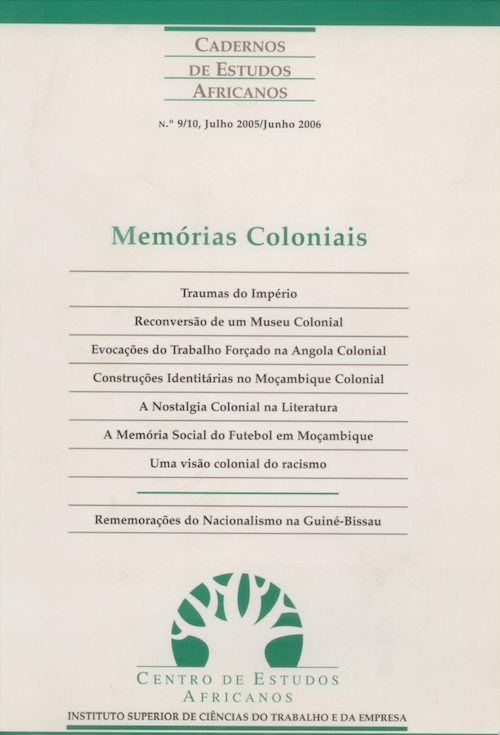From a Colonial Memory to a Memory of Colonialism. The complex reformation of the Royal Museum for Central Africa, former Museum of the Belgian Congo
DOI:
https://doi.org/10.4000/cea.1207Keywords:
Musée Royal de l'Afrique Centrale, mémoire collective, Congo BelgeAbstract
Until very recently, the Royal Museum for Central Africa, in Belgium, a national institution once dedicated to colonial propaganda, provided a public narrative of the Congolese and the African reality very much tinged with by its colonial context of creation. The study of its on-going renovation — a process that began in the early 2000s — allows me to consider the complex role of this official materialisation of the Belgian memory of colonialism: by turns, but also simultaneously, it provides and is produced by the social frameworks of memory that function in the Belgian society. The article deals with the museum's long sleep and its eventual evolution, replacing it in the scientific, political, and social context of a current general back-fire of the memory of the colonial past in the country. The analysis of the reformation process of this institution (including an investigation of a spectacular temporary exhibition entitled «Memory of the Congo. The Colonial Era», held in 2005) highlights the underlying emergence of a political and museal project which aims to create a unified and allayed memory of colonialism in Belgium — a memory which, in its conception, is supposed to be shared with the Congolese people and that is seen as a promise of fruitful and close relations with the former colony. The article deals with the expressions and the limits of such a determined approach of memory.
ach of memory.
Downloads
Published
Issue
Section
License
Copyright (c) 2016 Cadernos de Estudos Africanos

This work is licensed under a Creative Commons Attribution-NonCommercial-ShareAlike 4.0 International License.
I authorize the publication of the submitted article/review of which I am the author.
I also declare that this article is original, that it has not been published in any other way, and that I exclusively assign the publication rights to the journal Cadernos de Estudos Africanos. Reproduction of the article, in whole or in part, in other publications or on other media is subject to the prior authorization of the publisher Centro de Estudos Internacionais do Iscte - Instituto Universitário de Lisboa.


